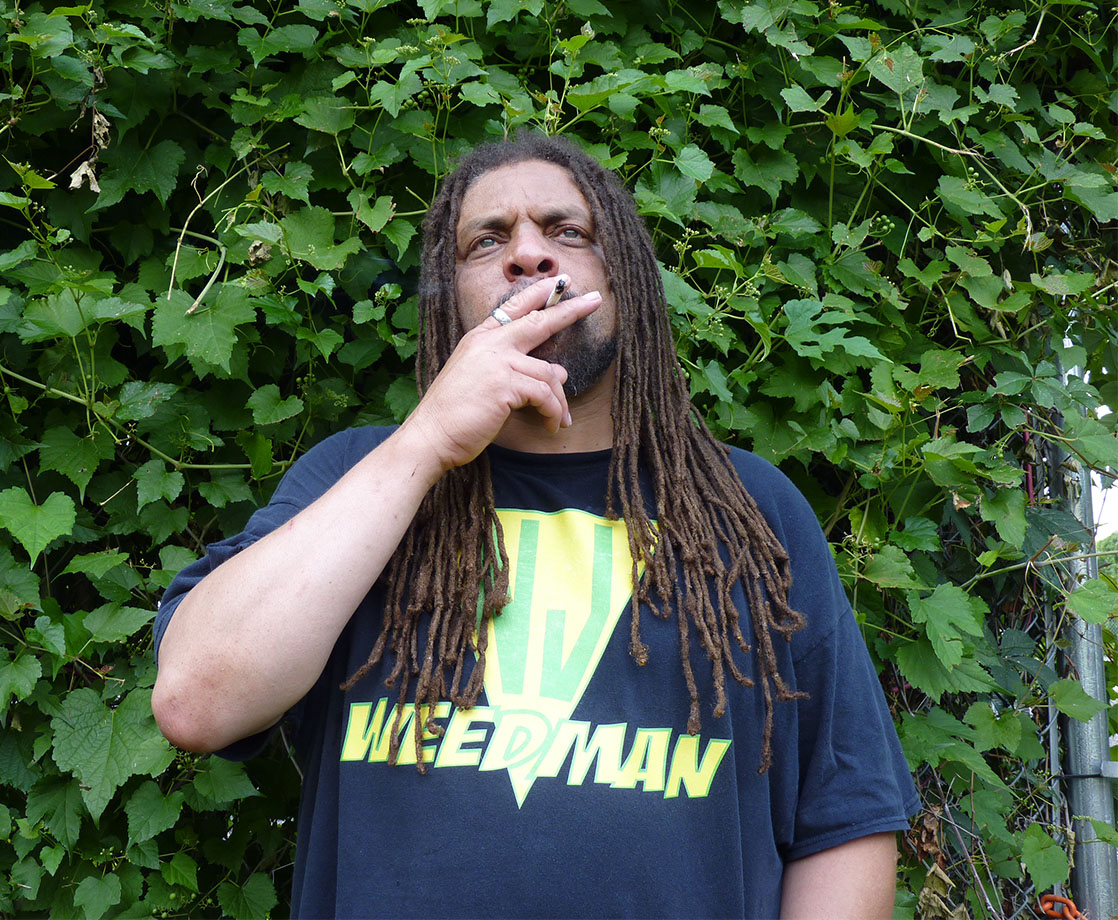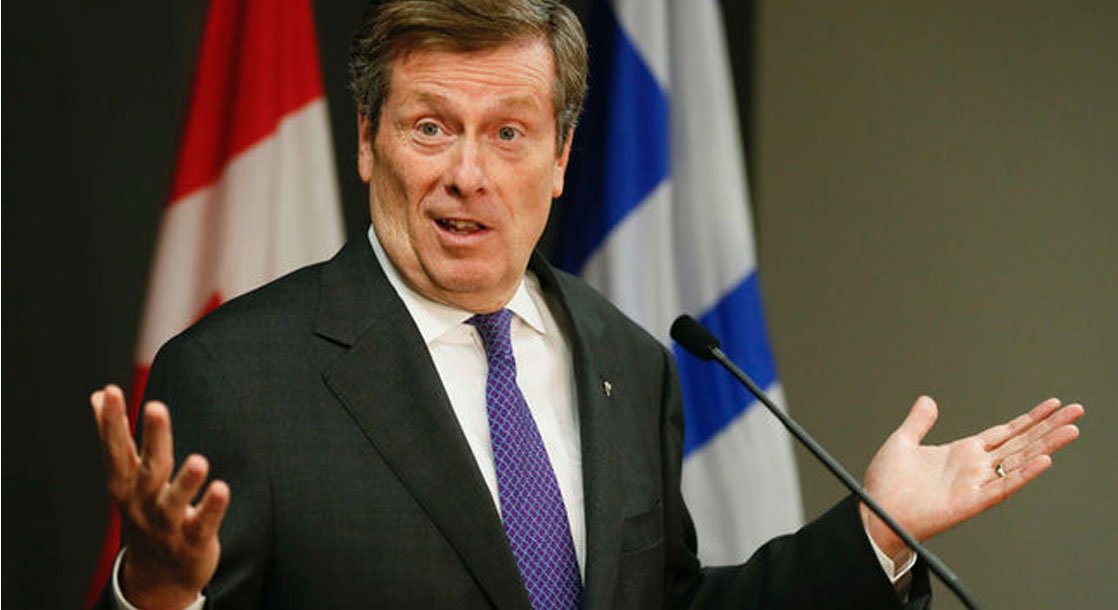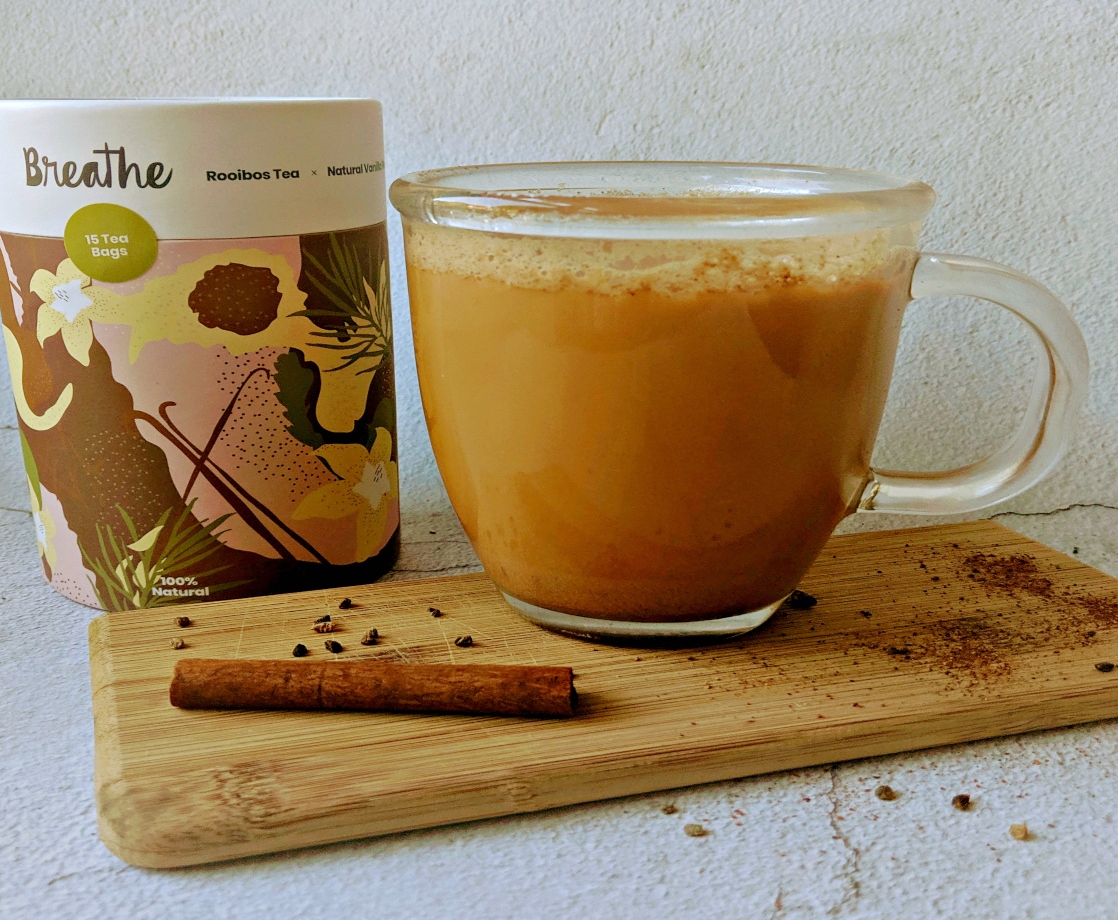All photos courtesy of the author
Edward Forchion is an activist, author, restaurateur, and, most recently, a candidate for the New Jersey Legislature. Forchion, known as NJ Weedman, has been advocating marijuana legalization in the Garden State for more than two decades. Now, at 54, he's running for the New Jersey Assembly in the 15th District, and, if elected come November 6th, he would be able to have a direct influence on the policies he's spent a large chunk of his life promoting.
The Weedman has ran for office several times in the past, including for governor of New Jersey in 2005 and U.S. Congress three times, most recently in 2016 when he received more votes under the Legalize Marijuana Party than both the Green Party and Libertarian Party candidates combined. He also briefly announced a bid this year, from jail, for mayor of Trenton, the state's capital, which he had to call off due to not being able to make it onto the ballot from a lack of signatures; Forchion claimed it was because the city clerk failed to get him the proper forms while he was in jail.
He ran for state Assembly once before, too, but as he eyes a seat in the Legislature this time around he's hoping things will play out differently, as New Jersey is currently in a unique spot with regards to drug policy reform. The state is now closer to legalizing recreational cannabis than ever before, due to the election of Gov. Phil Murphy, a Democrat who campaigned on legalizing the plant for adult-use.
Forchion has become virtually indistinguishable from New Jersey's marijuana legalization activism. Over the years, he has made headlines when he sparked up a joint in the Statehouse, attempted to legally change his name to NJWeedman.com, and when he opened a restaurant called The Joint directly across the street from Trenton City Hall.
And although advocating for marijuana legalization is what Forchion is most known for, it isn't the only matter he is campaigning on this year.
Forchion spent 447 days in jail for witness tampering before being found innocent by a jury. He was released in May. During the ordeal, he was denied bail under New Jersey's Criminal Justice Reform Act, a policy that Forchion has grown increasingly critical of since his arrest back in March 2017. As part of his campaign platform, Forchion wants to make adjustments to the Criminal Justice Reform Act, which many people refer to simply as bail reform, and revise other aspects of the state's criminal justice system.
Forchion is no stranger to the judicial Powers That Be; he has found himself in court more than a handful of times, and has also been found not guilty multiple times, which he attributes to jury nullification. On the instances he did receive convictions, though, Forchion spent time behind bars.
In 1997, Forchion was caught with 40 pounds in New Jersey and was facing 20 years in prison. The prosecution, however, offered him a deal he couldn't refuse: 10 years in prison with eligibility for parole after less than two years. He pleaded guilty in 2000, and went from facing 20 years in prison to serving 18 months. In a separate case a year later, Forchion was charged with possession of a little more than a pound of marijuana in Philadelphia. He represented himself and the case was dismissed.
As someone who has published several books and appeared in multiple documentaries, Forchion believes all of these experiences have made him a smarter and stronger candidate for office, especially in a state intent on pushing cannabis reform. At his restaurant, NJ Weedman took the time to talk with MERRY JANE. While smoking a joint inside The Joint, he discussed his campaign, criminal justice reform, and what he hopes to change about marijuana policy in the Garden State.
MERRY JANE: You recently spent 447 days in jail only to be found not guilty. What happened with that case and how do you think it will impact your campaign and platform?
Ed "NJ Weedman" Forchion: I actually think it helps my case for state Assembly because so many people know me and so many people look at me as the victim. It was 447 days based on a totally phony charge the police and the prosecutors hit me with. They didn't shoot me in the back. They didn't plant guns on me. They didn't plant drugs on me. They just filed this case and I sat in jail with no bail for 447 days and after two trials I was found not guilty. I never was guilty.
I think it helps me. So many people followed [the story] and so many people felt for me. I came out as the David versus Goliath and I still think I have that David status. Going into this election, there's going to be people who are going to say, "This guy has been trying to get into office for 20 years, let's give him a shot."
You've been critical of New Jersey's recent Criminal Justice Reform Act, which was the main reason you were held in jail without bail. If elected to the New Jersey Assembly, what would you do to change bail reform?
I would put forth a bill to actually repeal it. I think if it gained a little traction, there would be a big push to fix it. And as a victim of the bail reform pushing for repeal of the bail reform, I think that would generate news stories and generate interest. As I go from town to town campaigning, that's who people are going to remember. They're going to remember that guy who got held up in jail for a year and a half on some phony charge.
You've run for office several times in the past, but now New Jersey is closer than ever to seeing cannabis legalization. How do you expect this to affect your candidacy?
It makes it look like I was right the whole time. Instead of people looking at me like that weirdo guy who always advocated for marijuana, now they're like, "Wow, this guy was a visionary. He was a little bit before his time. He wasn't really the village idiot, he was the village genius. We just didn't know."
I think that's what I get now. I constantly get people saying you were right. They think that somehow because of me it's now at that point [of being nearly legalized in New Jersey], but it's not really. I wouldn't say that. I did keep that presence of weed legalization in New Jersey going for the last 20 years. I was one of the first big vocal mouths about it in New Jersey, but this is snowballing from the West Coast. It's here, it's not going away. If I went away, it wouldn't change [the momentum].
What do you think of the proposed marijuana bills in New Jersey?
I pray that Senator Nicholas Scutari's bill is not accepted. If it did get through the Senate and the state Assembly and got before Gov. Murphy, I'd beg him to veto it. That's because one of the things Murphy ran on is diversity. Marijuana legalization was one of his things, he did say he was going to increase taxes. I think legalization can happen and I'm not opposed to taxes, OK? So, I'm there on legalization, but Senator Scutari's bill is wrong on so many levels.
First of all, it creates this legal cannabis industry as opposed to a free market system. It uses basically the same people who previously got licenses through his other medical bill, CUMMA, now they get to expand and become the legal marijuana industry, essentially. I resent that. I think it should be a free market system, maybe more like California or Washington, D.C. What I think legalization should do is legalize the black market. I think that if somebody wants to open up a mom and pop shop and sell weed, or grow weed in their backyard and share it with their neighbors, then so be it. That, to me, is legalization. Home growing would be included because some people don't even want to participate in the system, some people want to be off the grid.
You have spoken about including more minorities in marijuana legalization discussions and argued for home growing to be included in any recreational legislation. What else would you like to see in a legal recreational cannabis industry in New Jersey?
I would probably focus on legalization from a licensing [perspective]. If I was elected, I would actually submit a bill and title it State Bill 420. In my bill, I would advocate a licensing method where everyone who wanted to possess marijuana would once a year buy a marijuana tax stamp or license, or whatever word you want to use, for $420 and it's good for an entire year. If you get caught without a card, guess what the fine is: $420. That money could be earmarked, budgeted, for whatever we decide, although I wouldn't want it to go into the state's general budget fund. I would want that money earmarked for something special. Whether you directed it towards combating heroin addiction, or towards schools, or maybe you let the local municipalities keep it to offset their property taxes — that could be a variation of it.
I think the [tax revenue from legal weed] should go into a large fund and then we direct that large fund to specific problems. But keeping it out of the general fund would be part of the bill. They tried that before with lottery for senior citizens, but that money goes into the general state fund. They tried that with the casinos, and that money goes into the general fund. But I think that's what we should do. There's already zones all around the state — whether they're urban redevelopment zones, or economically depressed or tax-free zones — and I would use the licensing procedure to make sure recreational marijuana businesses open up there. They would have to pay property taxes and they would have to do this and that. Opening up in towns like this would help because you would also get employees from there. What I call it is a method of reefer reparations. This would be a way to help the communities that were hardest hit by the War on Drugs.
In the past, you have run for office under the Legalize Marijuana Party. How do you describe your platform now?
This time, I've changed my slogan. It's nwo: Repeal Bail Reform. I'm stuck with marijuana, I'm there, and people already know me for weed issues. I also want to introduce some type of legislation for jury nullification like they did in New Hampshire. I think that was key in my trial. I've always angled for it and had very good luck. I think people know what I'm talking about and I like representing myself. What I did for my defense was a jury nullification defense. Represent yourself. Portray yourself as the victim. Portray yourself as fighting the big, evil government. And people will vote with their conscience — that's what jury nullification is. They don't have to necessarily be against a particular law, and a lot of people identify jury nullification as that.
Prosecutors knowing that, knowing the argument that I could argue, they wouldn't even prosecute cases like that. This is a push back against over-prosecution, a push back against mass incarceration. People don't have a way of arguing. They're limited. Everything is against the law. We live in a society that is used to 2 million people being in prison at any given time. This is supposed to be the land of the free, but this isn't the land of the free. We have more laws than any other country, we arrest more than anybody else. It's now an illusion to say we're the land of the free. We talk about freedoms and liberties and all that, but we have so many laws that you could end up in jail for anything.
What would be your top three priorities if you were elected to office?
Repeal the bail reform, present a marijuana legalization law that would really benefit "we the people" and not the big corporations. And then the third thing would be getting involved in trying to lower mass incarceration through things like allowing for jury nullification, though obviously that goes back to bail reform. I would massively fund the public defender's office too. The public defender's office is so overworked. The idea of having a fair trial is laughable. If you have money and you have means and you can get a good lawyer, then you can be as close to justice as you can. But if you have a public defender who is overworked, and they have 40 cases, they can't help everyone properly.
What sort of methods will you utilize during your campaign?
I might have a few 420-friendly type of parties here [at The Joint in Trenton]. I'm going to use this as my campaign headquarters. Right now, I'm in the process of getting a new weed mobile. I plan on hitting some of these suburban towns like Hopewell and Titusville and those towns up along the river and up into Hunterdon County. Everyone around here knows me. People know me in Trenton. I can campaign very easily here. I can kiss babies and pass joints here.
In September, I'll start going to other parts of New Jersey, riding from town to town. A lot of people do know me there and read about me, but they don't know me by sight. I'm just going to go find spots and hangout, walk into bars passing out fliers. I'm going to stand in front of a couple supermarkets and talk to whoever will talk to me. I'm going to pay for a lot of political ads on Facebook. I'm going to use social media like a Russian.
Will you run again if you aren't elected in November?
Yes, I will run again. I want to effectuate change from within. It's my way of protesting and resisting.
For more on the NJ Weedman, visit his website here
Follow Nick Muscavage on Twitter














